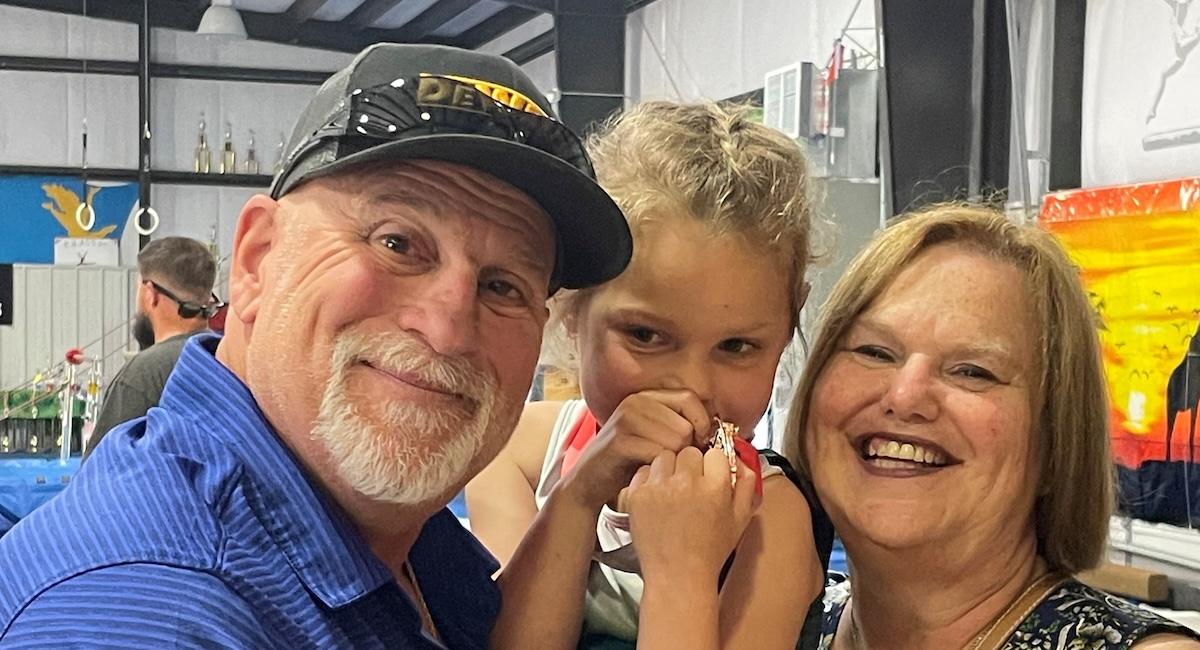Ozempic patient blinded by NAION sues Novo Nordisk

Plaintiff Todd Engel pictured with his wife and daughter.
A Maryland man who has lost his vision due to non-arteritic anterior ischaemic optic neuropathy (NAION) is suing Novo Nordisk, alleging that Ozempic, which he was taking for diabetes, is the cause of his condition.
Lawyers for Todd Engel, 62, filed suit yesterday in New Jersey superior court. According to the complaint, Engel is now legally blind. As a result he was forced to resign from his job and has lost the ability to drive. He was prescribed Ozempic around August 2023 and diagnosed with NAION in December of 2023.
"We see this as a very important case," Ashley Hornstein, a lawyer for Engel, told pharmaphorum. "An injury like this we view as incredibly severe, absolutely debilitating, and truly life-changing. We're proud to represent Todd Engel and his family."
NAION is a relatively rare eye condition that is nonetheless second-leading cause of optic nerve blindness after glaucoma. The exact cause is not well understood, but doctors believe it is related to insufficient blood supply to the optic nerve head, generally leading to permanent vision loss in one eye. It has no approved treatment.
The lawsuit points to a handful of studies, including one published in JAMA Opthalmology, that suggest a link between NAION and GLP-1s as evidence that Novo Nordisk ought to have known about the risk and included it in labelling and advertising. That risk is not currently listed in any public labelling for the drug.
"This is a situation where, had Novo Nordisk done the appropriate work upfront there could have been an appropriate warning," Dan Lipinski, another lawyer representing Engel, told pharmaphorum. "But in addition to that, after the drug went onto the market there were markers, whether they be adverse event reports or otherwise, that could have and should have led them to make some change to the label to make people aware of the fact that this injury was real and was something that people needed to be aware of when making that risk-benefit determination."
Despite multiple studies, the evidence of the link is thin -- the lawsuit itself references a study that concluded there was no statistically significant correlation. But this is complicated by the fact that NAION is a rare condition, making it difficult to obtain statistical significance without a very large sample size.
Engel is represented by Motley Rice, a firm that specialises in representing consumers and workers in suits against large companies, including pharma companies. Plaintiffs are seeking relief based on nine counts of liability, negligence, and breach of warranty.
Novo Nordisk was previously sued in 2023, along with competitor Eli Lilly, by a patient with severe gastrointestinal side effects after taking Ozempic and Lily's Mounjaro. That lawsuit is being coordinated with other similar suits, including one filed by Motley Rice. Proceedings are still ongoing.
Lipinski said this case might well go the same way -- in fact another suit was filed earlier this month.
"While this is the first complaint that was filed, I think we're comfortable in saying that there will be more complaints filed, not only by our firm but by other firms, and we may ultimately end up with a situation where there's some type of a coordinated proceeding and these cases are all being managed by a single judge," he said.
This lawsuit is the latest development in what is becoming a growing concern for Novo Nordisk around NAION. Last year, the Danish Medicines Agency (DMA) asked the European Medicines Agency's Pharmacovigilance Risk Assessment Committee to investigate NAION risk from Ozempic.
As of press time, Novo Nordisk did not respond to a request for comment.












